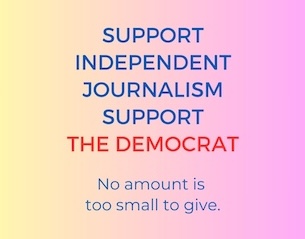- India
- Jane Street Banned! SEBI Exposes Dark Underbelly of India’s Stock Market Manipulation
Jane Street Banned! SEBI Exposes Dark Underbelly of India’s Stock Market Manipulation

Mumbai I Nitin Sindhu VY
In a stunning crackdown, the Securities and Exchange Board of India (SEBI) has slapped a six-month interim ban on New York-based trading giant Jane Street, unmasking a sophisticated “white-collar crime” scheme that raked in billions by exploiting India’s stock markets. The move not only bolsters SEBI’s authority but lays bare the fragility of Indian markets, exposing a saga of high-tech manipulation and massive profits at the expense of small investors.
The Rise of Jane Street
Founded 25 years ago in the U.S., Jane Street is a global powerhouse in high-frequency trading and market-making, boasting a jaw-dropping $20.05 billion in revenue in 2024. With over 3,000 employees and offices across the Americas, Europe, and Asia, the firm operates in 45 countries’ stock markets and serves as a key player in Exchange-Traded Funds (ETFs). In 2020, Jane Street stormed into India through two local subsidiaries and foreign entities in Hong Kong and Singapore, quickly amassing $2.3 billion in revenue from bank stock derivatives in 2024—10% of its global earnings.
The Indian Market Heist
India’s stock markets operate in two arenas: the cash market, where shares are traded and settled instantly, and the futures and options (F&O) market, a speculative playground where trades can be settled within three months. Jane Street, armed with cutting-edge technology and artificial intelligence, mastered the art of timing and manipulation. By targeting the Nifty 50 and Bank Nifty indices, the firm engineered trades that netted billions in profits. A SEBI report revealed a grim reality: from 2022 to 2024, nine out of ten F&O traders suffered crippling losses, while Jane Street cashed in.
The Whistleblower Spark
The scandal came to light through a corporate feud. Two Jane Street employees, who developed the firm’s lucrative trading algorithms, defected to rival Millennium Management. Their shady dealings triggered a dispute that exposed Jane Street’s tactics, prompting SEBI to launch a forensic audit of the firm’s trades from January 2023 to March 2025. The findings were staggering: Jane Street pocketed ₹36,500 crore by manipulating Indian indices, accounting for 25-38% of trades in those markets.
How They Pulled It Off
SEBI’s 105-page order details Jane Street’s cunning playbook. Strategy One: On Bank Nifty option expiry days, the firm aggressively bought component shares or futures in the morning, inflating the index. They then built massive “short positions” in options (selling without owning assets) before reversing trades in the afternoon for colossal profits. Strategy Two: In the final half-hour of trading, Jane Street unleashed a frenzy of buying or selling, triggering wild index swings that crushed small investors while fattening the firm’s coffers.
The Fallout for Small Investors
India’s F&O market, often likened to high-stakes gambling, has bled billions from retail investors, especially young traders. SEBI recently tightened regulations to shield small players, sparking backlash from the investment community. Yet, Jane Street’s unchecked manipulation—enabled by advanced tech and AI—proved catastrophic for thousands, highlighting the speculative frenzy gripping India’s markets.
SEBI’s Bold Stand
SEBI’s ban on Jane Street is a masterstroke, following a meticulous two-year probe into the firm’s unethical practices. By exposing violations of fair trade rules, SEBI has sent a clear message: market manipulation won’t go unpunished. However, the saga exposes a deeper truth—the shallowness of India’s stock markets. The Bombay Stock Exchange and National Stock Exchange, overly focused on speculative F&O trading, have neglected the depth of the cash market, leaving it vulnerable to exploitation by global players like Jane Street.
What’s Next?
While SEBI deserves applause for its decisive action, the Jane Street case is a wake-up call. India’s markets must move beyond speculative excesses and build robust, transparent systems. The government and SEBI now face a critical challenge: implementing bold reforms to protect investors and restore global confidence. As the world watches, the lessons from this scandal will shape the future of India’s financial landscape.
Will India’s markets rise above their vulnerabilities, or remain a playground for global giants? Only time will tell.
* (Its Authors Personal Opinioun)
About The Author













